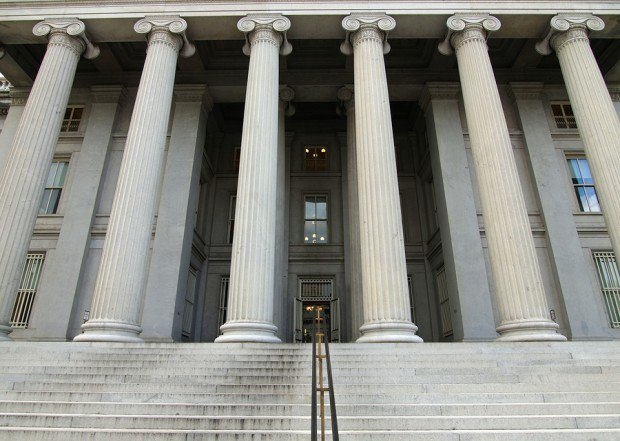Prudential Financial Inc., the No. 2 U.S. life insurer, is contesting a U.S. finding that it poses a potential risk to the financial system, becoming the first company to challenge the label that brings additional oversight.
Prudential requested a hearing to explain why it shouldn’t be considered a systemically important financial institution, or SIFI, the Newark, New Jersey-based company said yesterday in a regulatory filing.
“We will continue to work closely with regulators to demonstrate our belief that the company does not meet the requirements of the SIFI designation,” Scot Hoffman, a spokesman for the insurer, said in an e-mailed statement.
The Dodd-Frank act, designed to avoid a repeat of the 2008 bailouts, increased supervision of the largest U.S. lenders and allowed the Treasury Department’s Financial Stability Oversight Council to designate non-bank firms for extra oversight. The label could impose limits tied to capital and liquidity, the insurer said in the filing.
Companies that receive the risk label will be regulated by the Federal Reserve, which hasn’t yet written final rules for the oversight. Prudential has said it wants to avoid regulatory standards designed for banks. Suzanne Elio, a Treasury spokeswoman, said the council has a “robust process” for evaluating whether companies are systemically important.
The label “non-bank SIFI has the potential for being very disruptive to their business model, if they’re required to hold capital at a level that puts them at a disadvantage to other insurance companies,” said Ed Shields, an analyst at Sandler O’Neill & Partners LP.
Strangfeld’s Course
Chief Executive Officer John Strangfeld, 59, is pursuing a different course than the leaders of American International Group Inc. and Fairfield, Connecticut-based General Electric Co.’s finance unit, GE Capital Corp., which each said yesterday they won’t contest SIFI status. The three companies said June 3 they were identified by the council as potential risks to the economy. They were given until today to appeal.
Prudential has said that it doesn’t fit the quantitative standards to be labeled a SIFI, and that traditional insurance activities don’t pose systemic risk.
By requesting the review, Prudential may be able to get more insight into how it will be regulated and what parts of its business most concern federal regulators, said Ed Mills, a policy analyst at FBR Capital Markets in Arlington, Virginia. He said the company probably won’t be able to convince the council that it’s not systematically important.
GE, AIG
“We have decided not to appeal or ask for a hearing,” Russell Wilkerson, a spokesman for GE Capital, said yesterday. “We have been and will be prepared to meet the requirements for SIFIs.”
During the financial crisis, AIG received a U.S. bailout that swelled to $182.3 billion, as bets on mortgages soured. The insurer repaid the U.S. rescue last year and has said it understands why it faces extra scrutiny.
“AIG welcomes supervision by the Federal Reserve, and is already working closely with the Federal Reserve Bank of New York as our regulator,” Jon Diat, a spokesman for the insurer, said in an e-mail.
The council has 30 days to schedule a hearing, Prudential said, citing U.S. regulations.
MetLife Inc., the largest U.S. life insurer, wasn’t included in this review because it was already under Fed regulation stemming from its ownership of a bank, which it has since sold. The New York-based insurer has said it shouldn’t be deemed systemically important.
While Prudential’s insurance units are well regulated, the company’s size, global reach and investments help make it systemically important, said Mayra Rodriguez Valladares, managing principal at MRV Associates.
“I look at the asset size, I look at the interconnectedness, I look at the international positions,” she said by phone. “And I’m struggling to think, why do you think you’re not a SIFI?”





















 State Farm Inked $1.5B Underwriting Profit for 2025; HO Loss Persists
State Farm Inked $1.5B Underwriting Profit for 2025; HO Loss Persists  Reinsurance Program Could Wipe Out Need for Calif. FAIR Plan: Legal Exec
Reinsurance Program Could Wipe Out Need for Calif. FAIR Plan: Legal Exec  Why Claims AI Build vs. Buy Decisions So Often Miss the Mark
Why Claims AI Build vs. Buy Decisions So Often Miss the Mark  Telematics and Trust: How Usage-Based Insurance Is Transforming Auto Coverage
Telematics and Trust: How Usage-Based Insurance Is Transforming Auto Coverage 

